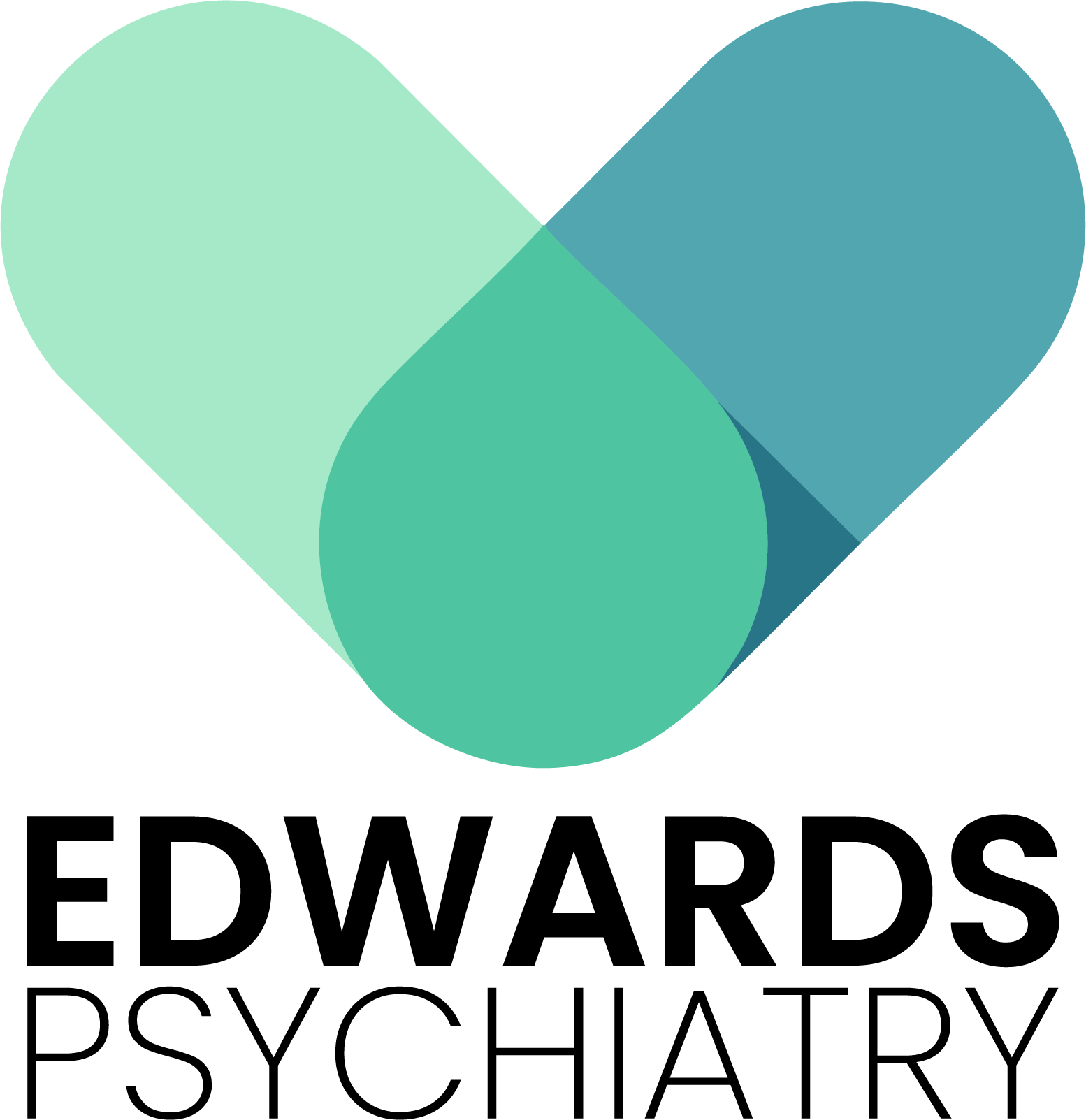Finding Mental Health Care When You're Tired of Explaining Your Identity | Culturally Competent Therapy Seattle
Why representation matters in mental health and how to find providers who truly understand your experience
If you're reading this, chances are you've experienced the exhaustion of having to educate yet another mental health provider about your identity and how it impacts your well-being. Maybe you've sat in therapy sessions explaining why your cultural background influences your relationship with family, or why your experience as a LGBTQ+ person affects your mental health in ways that textbooks don't capture.
At Edwards Psychiatry in Seattle, we understand that seeking culturally competent therapy shouldn't require you to become a teacher about your own identity. Our team includes mental health providers who bring lived experience and cultural competence to their practice, creating space where you can focus on healing rather than explaining who you are.
The reality is that representation matters deeply in mental health care. When you work with therapists and psychiatrists who understand your cultural background, identity, and lived experiences, the therapeutic alliance becomes stronger, treatment becomes more effective, and healing can happen more naturally.
Article Contents
This comprehensive guide explores why finding culturally competent therapy is so important, particularly for BIPOC and LGBTQ+ individuals who may feel misunderstood by traditional mental health providers. We'll discuss the impact of cultural competence on treatment outcomes, share strategies for finding mental health professionals who truly understand your experience, and explain how Edwards Psychiatry approaches identity-affirming care in Seattle and throughout Washington state.
The Hidden Cost of Constantly Explaining Your Identity
For many people from marginalized communities, seeking mental health support involves an additional burden that their peers don't face: having to constantly explain how their identity affects their mental health, relationships, and daily experiences.
This educational burden can be exhausting and counterproductive to the healing process. When you spend therapy sessions explaining microaggressions, cultural expectations, family dynamics shaped by immigration experiences, or the stress of navigating the world as a LGBTQ+ person, there's less time and energy available for actual therapeutic work.
The need to repeatedly explain your identity can also recreate feelings of otherness and isolation that may already be contributing to your mental health concerns. Instead of feeling understood and supported, you might leave sessions feeling like you're still on the outside looking in, even in what should be a safe therapeutic space.
Cultural competency goes beyond simply accepting diverse clients. It involves mental health professionals actively educating themselves about different communities, understanding how systemic oppression affects mental health, and recognizing how cultural factors influence everything from symptom presentation to treatment preferences.
When culturally competent therapy is absent, clients may receive inadequate care, experience misdiagnosis, or discontinue treatment altogether. Research consistently shows that cultural competence in therapy improves engagement, treatment outcomes, and overall satisfaction with mental health services.
Why Representation Matters in Mental Health Care
Representation in mental health care isn't just about feeling comfortable—it's about receiving care that truly addresses your needs and respects your full humanity. When mental health providers share aspects of your identity or demonstrate genuine cultural competence, several important things happen.
First, you spend less time explaining basic concepts about your community and more time addressing the specific concerns that brought you to therapy. A culturally competent therapist already understands that discrimination affects mental health, that family dynamics vary across cultures, and that identity development can be complex for marginalized individuals.
Second, culturally competent mental health professionals are more likely to recognize how symptoms might manifest differently across cultures. Depression, anxiety, trauma responses, and other mental health conditions don't always present in the standardized ways described in textbooks, particularly when cultural factors influence expression of distress.
Third, representation helps combat internalized oppression and shame that many people from marginalized communities carry. When you see mental health providers who look like you or share aspects of your identity, it normalizes seeking help and challenges stereotypes about who deserves quality mental health care.
Finally, culturally competent therapy can address the unique stressors that marginalized communities face, including discrimination, intergenerational trauma, identity development challenges, and the psychological impact of systemic oppression. These factors significantly influence mental health but are often overlooked in traditional therapeutic approaches.
Understanding Cultural Competence in Mental Health
Cultural competence in therapy involves much more than simply being "open-minded" or "accepting" of diversity. It requires ongoing education, self-reflection, and active commitment to understanding how culture, identity, and systemic factors influence mental health and treatment preferences.
Cultural awareness forms the foundation of competent care. This involves mental health providers understanding their own cultural background, biases, and limitations while also learning about the communities they serve. Culturally aware therapists recognize that their perspective is not universal and actively work to understand different worldviews.
Cultural knowledge involves understanding the history, values, traditions, and contemporary experiences of different communities. For BIPOC communities, this includes understanding the impact of racism, historical trauma, and systemic barriers on mental health. For LGBTQ+ individuals, it involves understanding identity development, minority stress, and the effects of discrimination.
Cultural skills refer to the ability to effectively communicate and work with people from different backgrounds. This includes adapting therapeutic approaches to align with cultural values, using culturally appropriate interventions, and recognizing when referrals to more specialized providers might be beneficial.
Cultural humility involves recognizing that learning about different cultures is an ongoing process. Culturally competent mental health professionals acknowledge when they don't know something, ask respectful questions, and continuously educate themselves rather than expecting clients to serve as teachers about their own communities.
At Edwards Psychiatry, we understand that developing cultural competence is an ongoing commitment that requires continuous learning, self-reflection, and genuine respect for the diverse experiences of our clients.
The Unique Mental Health Needs of BIPOC Communities
BIPOC individuals face distinct mental health challenges that require understanding from mental health providers. These challenges stem from both historical trauma and contemporary experiences of racism and discrimination that affect mental health in profound ways.
Racial trauma refers to the psychological and emotional injury caused by encounters with racial bias, discrimination, and hate crimes. This trauma can manifest as symptoms similar to PTSD, including hypervigilance, intrusive thoughts, and emotional numbing. Many traditional therapists lack training in recognizing and treating racial trauma.
Intergenerational trauma affects many BIPOC communities, particularly those with histories of slavery, genocide, forced migration, or other systematic oppression. This trauma can be passed down through families and communities in ways that influence mental health across generations.
Code-switching stress occurs when individuals must constantly adjust their behavior, speech, and presentation to navigate predominantly white spaces. This constant adaptation can be mentally and emotionally exhausting, contributing to anxiety, depression, and identity confusion.
Model minority pressure affects many Asian American communities, creating unrealistic expectations for academic and professional success while ignoring mental health needs. This pressure can lead to perfectionism, anxiety, and reluctance to seek help.
Immigration-related stress impacts many BIPOC individuals and families, including concerns about documentation status, cultural adaptation, language barriers, and maintaining connections to heritage cultures while integrating into American society.
Culturally competent therapy for BIPOC individuals involves understanding these unique stressors while also recognizing the strength, resilience, and rich cultural resources that exist within these communities.
LGBTQ+ Mental Health: Beyond Coming Out
LGBTQ+ individuals face specific mental health challenges that require understanding from culturally competent mental health providers. While coming out receives significant attention, the ongoing stressors of living as a sexual or gender minority are equally important to address in therapy.
Minority stress refers to the chronic stress experienced by marginalized groups due to stigma, prejudice, and discrimination. For LGBTQ+ individuals, this includes both external stressors (discrimination, rejection, violence) and internal stressors (internalized homophobia, identity concealment, rejection sensitivity).
Identity development can be complex for LGBTQ+ individuals, particularly when family, religious, or cultural backgrounds are not affirming. Culturally competent therapists understand that identity development is an ongoing process that may involve multiple "coming out" experiences throughout life.
Intersectionality affects LGBTQ+ individuals who also belong to other marginalized communities. LGBTQ+ people of color, for example, may face discrimination from both LGBTQ+ and racial/ethnic communities, creating unique challenges that require nuanced understanding.
Family dynamics can be complicated for LGBTQ+ individuals, particularly when families struggle with acceptance. Culturally competent therapy addresses these dynamics while respecting cultural and religious contexts that may influence family responses.
Medical transition for transgender individuals involves complex decisions that affect mental health. Culturally competent mental health providers understand the medical aspects of transition while also addressing the psychological components of gender identity development.
Chosen family relationships are often crucial for LGBTQ+ individuals who may experience rejection from biological families. Culturally competent therapists recognize and validate these relationships as legitimate support systems.
Finding Culturally Competent Mental Health Providers
Searching for culturally competent therapy requires more than reading provider websites or checking diversity statements. It involves asking specific questions and looking for concrete evidence of cultural competence and ongoing commitment to serving diverse communities.
Research providers' backgrounds and training.
Look for mental health professionals who have specific training in multicultural counseling, cultural competency, or working with your specific community. This training should be ongoing rather than a one-time workshop.
Ask direct questions about experience.
Don't hesitate to ask potential therapists about their experience working with people from your community. Culturally competent providers will welcome these questions and provide specific examples of their training and experience.
Look for evidence of ongoing education.
Cultural competence requires continuous learning. Ask about recent training, conferences attended, or professional development related to diversity and inclusion. Culturally competent providers actively seek opportunities to improve their skills.
Assess their comfort with identity discussions.
During initial consultations, notice how providers respond to discussions about your identity. Do they seem comfortable and knowledgeable, or do they appear nervous or dismissive? Trust your instincts about their level of genuine understanding.
Consider community recommendations.
Often the best referrals come from community organizations, support groups, or other members of your community who have had positive experiences with specific providers.
Evaluate their approach to systemic issues.
Culturally competent therapists understand that individual problems often have systemic roots. They should be able to discuss how discrimination, oppression, and social factors affect mental health.
Red Flags: When Providers Lack Cultural Competence
Recognizing the signs of inadequate cultural competence can help you avoid providers who may cause harm or provide ineffective treatment. These red flags indicate that a mental health provider may not be equipped to serve diverse communities effectively.
Color-blind approaches that claim "not to see race" or identity differences often indicate a lack of cultural competence. Effective providers acknowledge and respect differences rather than ignoring them.
Stereotyping or generalizations about your community suggest inadequate understanding. Culturally competent providers recognize diversity within communities and avoid making assumptions based on identity alone.
Discomfort with identity discussions may manifest as changing the subject when you bring up identity-related concerns or suggesting that focusing on identity is counterproductive to therapy.
Lack of knowledge about your community becomes apparent when providers make basic errors about your culture, history, or contemporary experiences. While providers can't know everything, they should demonstrate basic competency.
Defensive responses when questioned about their cultural competence or training suggest that they're not committed to ongoing learning and improvement.
Pathologizing cultural practices or values indicates a provider who views difference as deficit rather than recognizing the validity of diverse approaches to life and healing.
Minimizing discrimination or suggesting that focusing on systemic issues is unproductive reveals a fundamental misunderstanding of how oppression affects mental health.
The Edwards Psychiatry Approach to Cultural Competence
At Edwards Psychiatry, cultural competence isn't an add-on to our services—it's central to who we are and how we practice. Our approach is grounded in lived experience, ongoing education, and genuine commitment to serving the diverse Seattle community with respect and understanding.
Our team reflects the diversity of the communities we serve. Domenique Edwards brings her experience as a multiracial Black woman to her practice, understanding firsthand the intersection of identity and mental health. Stanford contributes his perspective as a Latino mental health provider, while Amy brings understanding of LGBTQ+ family dynamics through her personal and professional experiences.
We recognize that clients often specifically seek providers who share aspects of their identity. As Dr. Edwards notes, many clients seek her out specifically because she's a Black provider who understands their experiences. This shared understanding creates immediate connection and trust that enhances the therapeutic relationship.
Our cultural competence extends beyond shared identity to include ongoing education about the communities we serve. We regularly participate in training on multicultural counseling, attend conferences focused on diversity in mental health, and engage with community organizations to better understand the needs of different populations.
We understand that cultural competence requires humility and continuous learning. When we encounter experiences or identities that are new to us, we approach them with curiosity and respect, seeking additional education and consultation when needed to provide the best possible care.
Our treatment approaches are adapted to honor cultural values and preferences. We recognize that healing looks different across cultures and work collaboratively with clients to develop treatment plans that align with their values, family dynamics, and cultural contexts.
Addressing Intersectionality in Mental Health Care
Many individuals belong to multiple marginalized communities, creating complex intersectional experiences that require nuanced understanding from mental health providers. Culturally competent therapy must address these intersecting identities rather than treating them as separate, unrelated factors.
QTBIPOC individuals (Queer, Trans, Black, Indigenous, and People of Color) face unique challenges that exist at the intersection of racism, homophobia, and transphobia. They may experience discrimination from both LGBTQ+ and racial/ethnic communities, creating isolation and complex identity negotiation.
Immigrant LGBTQ+ individuals may navigate conflicts between cultural/religious traditions and sexual or gender identity. Culturally competent providers understand these conflicts without forcing clients to choose between aspects of their identity.
BIPOC women face the intersection of racism and sexism, which affects everything from how their anger is perceived to how their mental health symptoms are interpreted by healthcare providers.
Religious minorities who also belong to other marginalized communities may experience conflicts between spiritual beliefs and other aspects of their identity, requiring sensitive navigation of these complex dynamics.
Individuals with disabilities from marginalized communities face multiple forms of discrimination and may have limited access to culturally competent mental health services that also understand disability culture and needs.
Effective culturally competent therapy recognizes these intersections and addresses the unique stressors that arise when multiple marginalized identities interact. This approach validates the full complexity of clients' experiences rather than forcing them to compartmentalize different aspects of their identity.
Building Therapeutic Alliance Across Cultural Differences
Even when perfect identity matches aren't possible, strong therapeutic relationships can develop when mental health providers demonstrate genuine cultural competence, humility, and commitment to understanding their clients' experiences.
Cultural humility involves recognizing the limitations of your own perspective and approaching clients as the experts on their own experiences. Culturally competent providers ask questions respectfully and acknowledge when they need to learn more about specific communities or experiences.
Active learning demonstrates commitment to understanding. This might involve reading books by authors from your community, attending cultural events, or seeking consultation from other professionals with relevant expertise.
Validation of experiences with discrimination and oppression shows understanding of systemic factors that affect mental health. Culturally competent providers don't minimize these experiences or suggest that clients should simply "get over" discrimination.
Respect for cultural values means understanding that different communities may have varying approaches to family, spirituality, communication styles, and healing practices. Effective providers adapt their approaches to honor these differences.
Advocacy when appropriate demonstrates commitment to social justice and systemic change. While individual therapy isn't activism, culturally competent providers understand the connection between personal healing and social justice.
The Impact of Culturally Competent Care on Treatment Outcomes
Research consistently demonstrates that culturally competent therapy leads to better outcomes for clients from marginalized communities. These improvements occur across multiple domains and benefit both individual clients and the broader mental health system.
Increased engagement occurs when clients feel understood and respected by their mental health providers. They're more likely to attend appointments regularly, complete therapy homework, and actively participate in treatment planning.
Improved therapeutic alliance develops more quickly when cultural factors are understood and respected. Clients report feeling more comfortable sharing personal information and are more likely to trust their providers' recommendations.
Better symptom recognition occurs when providers understand how mental health conditions manifest across different cultures. This leads to more accurate diagnoses and more effective treatment approaches.
Reduced dropout rates benefit both clients and providers. When therapy feels relevant and respectful, clients are more likely to complete treatment and achieve their mental health goals.
Enhanced treatment relevance occurs when interventions are adapted to align with cultural values and preferences. Clients are more likely to find treatment strategies useful and applicable to their daily lives.
Decreased stigma around mental health help-seeking occurs when communities see providers who understand and respect their experiences. This benefits not only individual clients but entire communities.
Creating Inclusive Mental Health Spaces
Culturally competent therapy extends beyond individual provider-client relationships to include creating inclusive environments that welcome and affirm diverse communities. This involves attention to physical spaces, policies, and organizational culture.
Inclusive imagery in waiting rooms and offices reflects the diversity of clients served. This might include artwork by diverse artists, magazines representing various communities, and resources in multiple languages.
Affirming policies protect client confidentiality while respecting chosen names, pronouns, and family structures. Intake forms should be inclusive and allow clients to self-identify rather than forcing them into narrow categories.
Staff training ensures that everyone from receptionists to billing staff understands how to interact respectfully with diverse clients. Cultural competence should be organization-wide, not limited to individual providers.
Community connections demonstrate ongoing commitment to serving diverse populations. This might involve partnerships with community organizations, participation in cultural events, or support for social justice initiatives.
Accessible services remove barriers that might prevent marginalized communities from accessing care. This could include sliding scale fees, evening or weekend hours, or telehealth options for clients who face transportation challenges.
Frequently Asked Questions About Culturally Competent Therapy
Do I need a therapist who shares my exact identity?
While shared identity can be beneficial, it's not always necessary. What's most important is finding a provider who demonstrates cultural competence, respect for your experiences, and commitment to ongoing learning about your community.
How can I tell if a provider is truly culturally competent?
Look for specific training, experience working with your community, comfort discussing identity-related topics, and evidence of ongoing education. Trust your instincts about whether you feel understood and respected.
What should I do if my current therapist lacks cultural competence?
Consider discussing your concerns directly with your provider if you feel comfortable doing so. If this doesn't lead to improvement, it may be time to seek care elsewhere. Your mental health is too important to compromise.
Is culturally competent therapy more expensive?
Costs vary among providers regardless of their cultural competence. Many culturally competent providers offer sliding scale fees or accept insurance. Some, like Edwards Psychiatry, operate as private-pay practices but provide superbills for potential reimbursement.
How do I find culturally competent providers in my area?
Start with community organizations, LGBTQ+ centers, or cultural centers that may maintain referral lists. Professional directories often allow you to filter for providers with multicultural expertise.
Can online therapy be culturally competent?
Yes, when providers demonstrate the same commitment to cultural competence in virtual settings. However, access to technology and privacy concerns may affect some communities differently.
What if there are no providers from my community in my area?
Focus on finding providers who demonstrate strong cultural competence, humility, and commitment to learning about your community. Geographic distance shouldn't prevent you from accessing culturally responsive care.
Taking the Next Step Toward Culturally Responsive Care
Finding culturally competent therapy is an investment in your mental health and overall well-being. When you work with providers who understand your identity and experiences, therapy becomes more effective, relevant, and healing.
At Edwards Psychiatry, we're committed to providing culturally competent mental health care that honors your full identity and experiences. Our team understands that seeking mental health support requires courage, particularly when you've had negative experiences with providers who lacked cultural understanding.
We offer a free 15-minute consultation where we can discuss your specific needs, answer questions about our approach to culturally competent care, and determine if our practice might be a good fit for you. This conversation allows us to understand your background and preferences while explaining how we approach identity-affirming mental health care.
What to expect during your consultation:
We'll listen to your experiences with previous mental health providers, discuss what you're hoping to find in culturally competent therapy, and explain our team's backgrounds and approach to care. We'll also address practical questions about scheduling, communication, and treatment approaches.
Getting started with identity-affirming care:
If we determine that our practice aligns with your needs, we'll schedule a comprehensive evaluation that typically lasts 90 minutes. This assessment honors your cultural background while exploring your mental health concerns and treatment goals.
Building authentic therapeutic relationships:
Our approach at Edwards Psychiatry prioritizes developing genuine connection and trust based on mutual respect and understanding. We believe that healing happens best when you feel truly seen and understood by your mental health providers.
Many of our clients tell us that finding culturally competent mental health care has been transformative, not just for addressing their immediate concerns, but for their overall relationship with mental health support and their sense of being valued and understood.
You deserve mental health care that honors all aspects of who you are. Whether you're dealing with anxiety, depression, ADHD, trauma, or other mental health concerns, culturally competent therapy can provide the understanding and support you need to heal and thrive.
Your identity is not a barrier to overcome in therapy—it's an integral part of who you are that deserves respect and understanding. Take the first step toward culturally responsive mental health care by scheduling your free consultation today.
When you no longer have to explain your identity to your mental health provider, you can focus your energy on the healing and growth that brought you to therapy in the first place. You deserve providers who get it from the start.
Share This Post
About the Author:
Domenique Edwards, MSN, ARNP, PMHNP-BC
Domenique is the founder of Edwards Psychiatry and a Board-Certified Psychiatric-Mental Nurse Practitioner specializing in ADHD care for adults and families. As a multiracial Black and Italian clinician, she brings both clinical expertise and lived understanding to mental health care, particularly for BIPOC and LGBTQIA+ communities.
Trained at a top university, Vanderbilt University School of Nursing, Domenique has been practicing independently in Seattle since 2017. She's passionate about providing the kind of collaborative, culturally competent psychiatric care she wished her own family had access to, where patients feel truly heard and understood.
You Might Also Like






